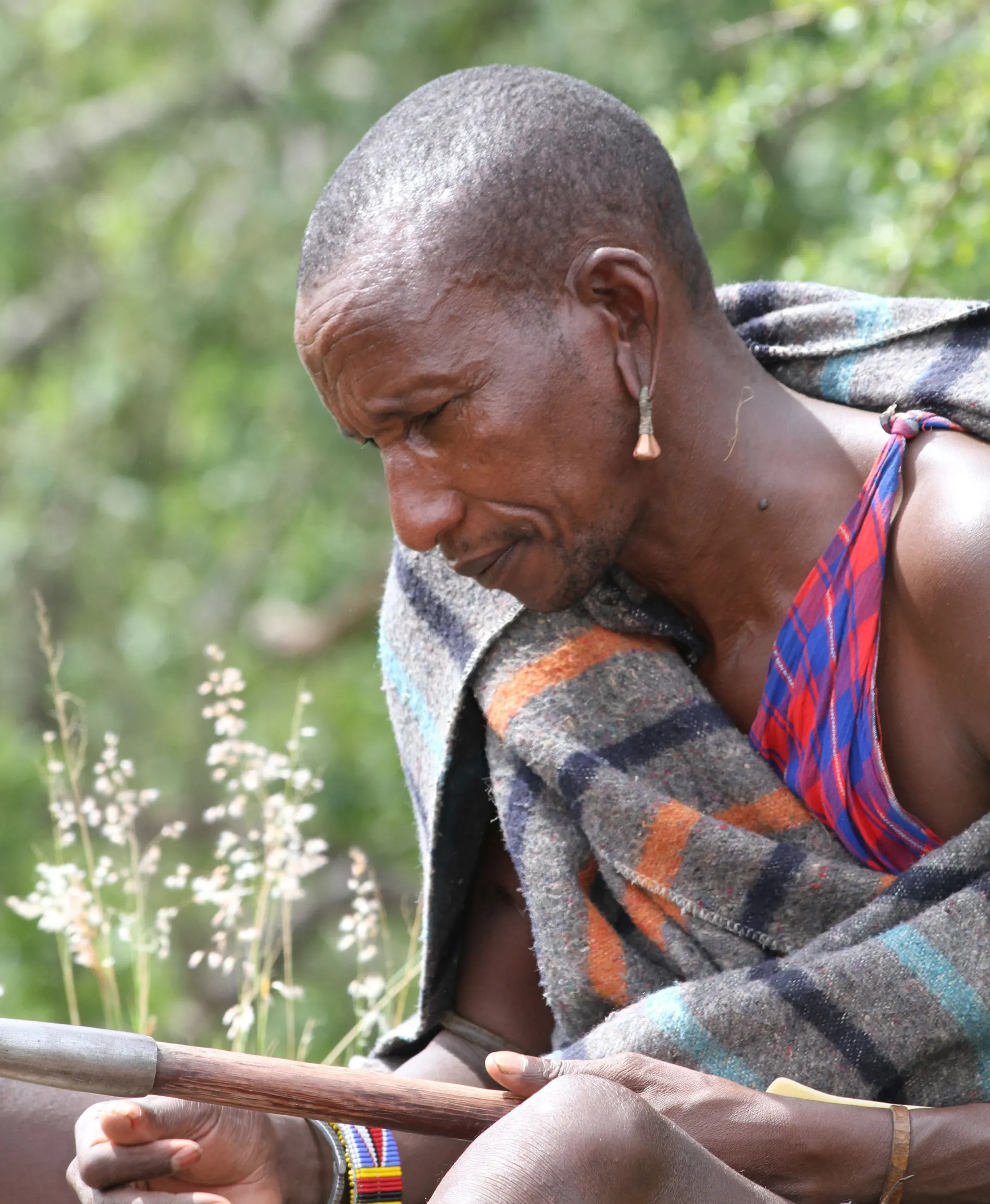Kenya’s Vanishing Beekeepers
4 November 2014 | The Mara | Susie Allan

The life of a hunter-gatherer is close to us all. To understand their lives is to understand our own roots and those principles that govern our lives today.
When I had my own tented camp in the Mara, a chance encounter with a hunter-gatherer, Letilet Ole Yenko, whose mother was a Maasai, led me to endeavour to capture a little of their world, their artefacts and the many uses of the plants that were essential to their lives. The more time I spent talking to Letilet, the more I realised that people like him, with no education whatsoever, had been looked down upon by neighbouring communities. Being an Il Torobo, or Ndorobo as they are sometimes called (a man without cattle), means a lowly status, and yet they have skills way beyond our comprehension. Since they are illiterate, their ability to retain facts and names is phenomenal. We described over three hundred plants in the vicinity of where Letilet grew up and Letilet knew the names and recognised at least as many more, some that were poisonous or may have been used for women’s ailments. Stories and songs are learnt and are deeply connected to their survival – survival techniques are second nature to them.
The Il Torobo gained a certain amount of respect as the official circumcisers of the neighbouring communities and they were also the local blacksmiths and no one knew better how to fashion a spear or a bow and arrow. They were privy to the secret recipes for the arrow poison with which they could bring down a charging buffalo. Their survival skills were remarkable. Ceremonies and rites of passage brought together foraging bands of Il Torobo who needed to socialise thus enabling the process of initiation to begin in their very early years.
Honey would be given to families and children, but the gift of honey wine had an almost ‘spiritual’ significance. Trading honey and honey brew was one way in which they could interact with the more wealthy pastoralist Maasai in their area. The Il Torobo were pastoralists in a different sense – their bees were their ‘animals’ and fundamental to their lives. The seasons affected them and they would be aware of good flowering seasons and those that were not, and the consequences that would have on their honey yields.
Letilet and I worked on our book, Letilet’s Tales – the Vanishing World of a Hunter-Gatherer, for over eight years. For those interested in exploring our human origins, we hope that this book will answer a few questions. There is a little film about Letilet at the end of the website www.letiletstales.com which you may enjoy and if you happen to see Letilet or one of his friends on your visit to the Mara, whilst staying at Angama Mara – be sure to say Supai naleng’ or hello from me!
TAGGED WITH:


